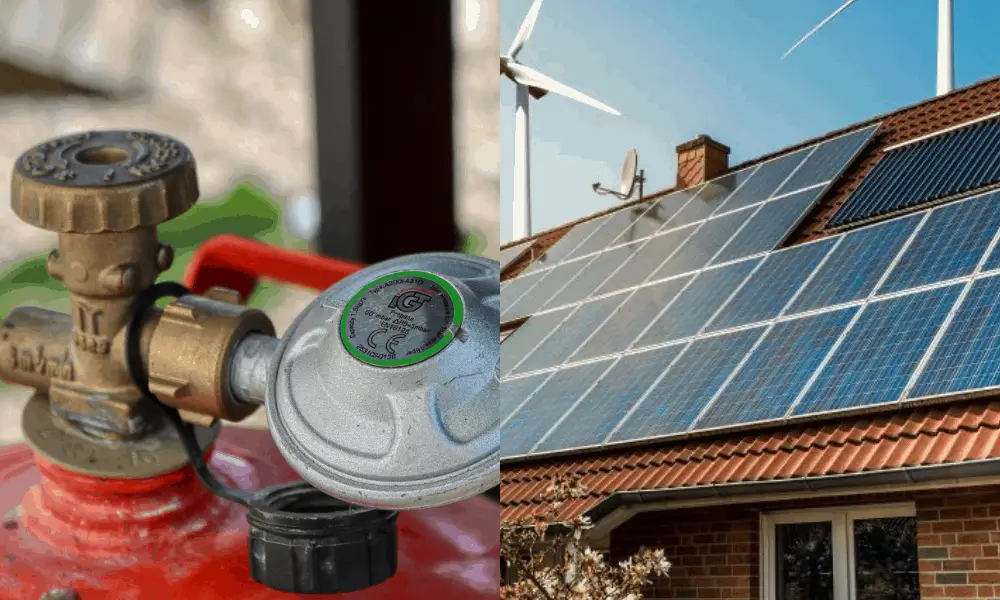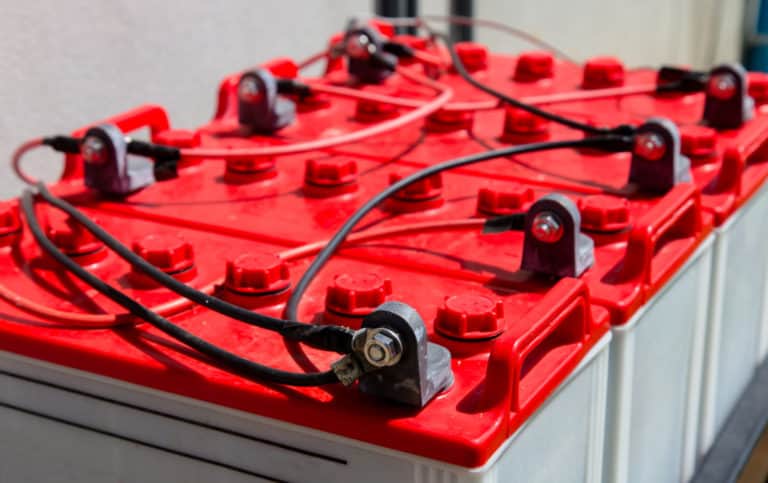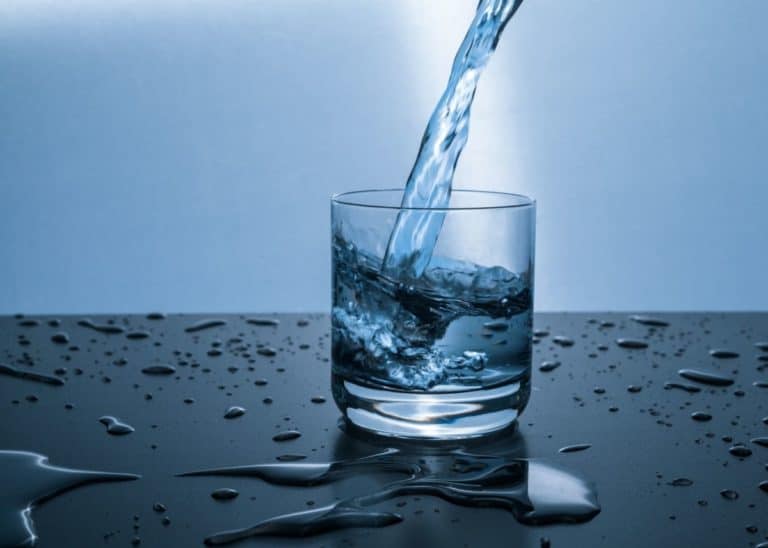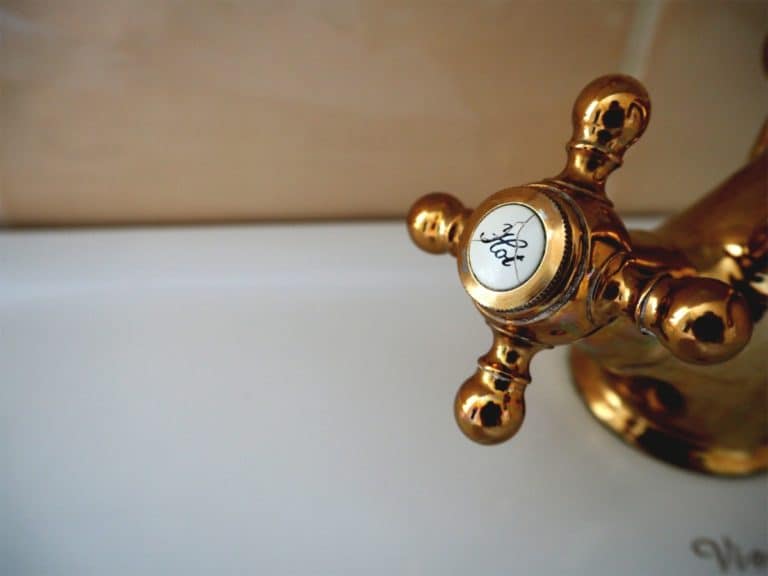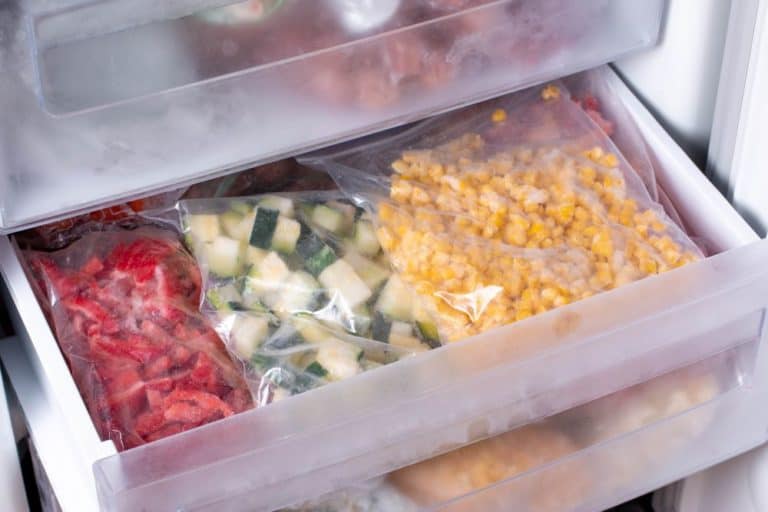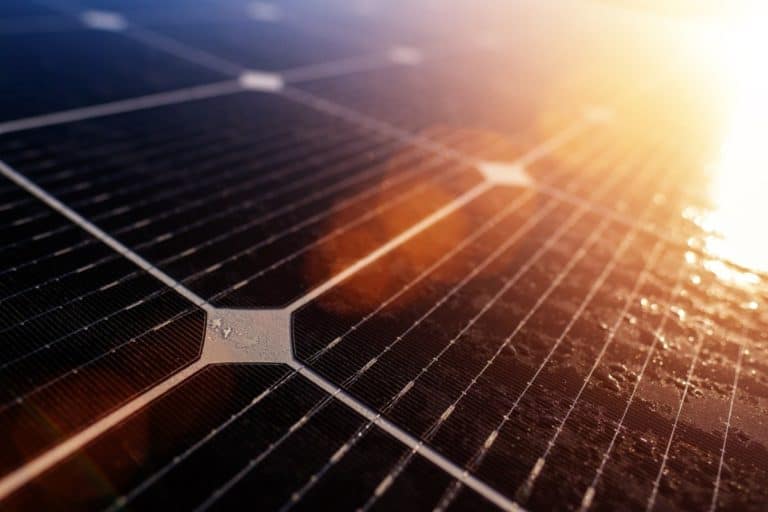Solar Vs Propane: Which Energy Source Is Best for Off-Grid Living?
When you’re preparing to take your home off-grid, you may think that solar panels are the ideal way to power your appliances. Solar electricity has numerous benefits, but many off-grid homes use propane as an alternative. It’s likely that everyone will have their own preference, but which alternative power source would be the true winner in a head to head?
A combination of solar and propane is the best power source for off-grid living. Propane offers fast, efficient heating and cooling; it’s ideal for heaters, ovens and freezers. The running cost of propane is higher than solar, but setup is cheaper. Having solar-powered heaters and appliances means you can get a smaller solar array to reduce setup costs.
Deciding what power source is right for you can be a complicated decision; the best way to approach it is to break it down into several key areas:
Heating
Anything that involves heating tends to use lots of energy. A typical electric room heater is 1.5 kW which would be a significant drain, on any solar panel system, even one with a large 10kW or 15kW array. If you need to run several heaters off your solar battery bank, they will burn through the power quickly and leave you short for other uses.
Propane, on the other hand, is much more efficient. The propane equivalent of 1.5kW is approximately 5,000BTU, which would use about 0.2 litres in an hour and cost about 16cents.
Once your solar panels and battery bank is set up the electricity is practically free so it’s hard for propane to compete. Although, while solar electricity is cheap, it can take a long time to harvest large amounts and heaters use it up very quickly. If you want to get through the winter without using all of your stored electricity in the first few days, you will need to install propane heaters or a propane furnace.
Because propane furnaces have less sensitive components, they can last up to 10 years longer than standard electric home heat pumps. They also have an incredible safety record because of strict safety codes but also because propane becomes difficult to ignite when mixed with air.
When it comes to heating, propane is the clear winner. Electricity is inefficient when it comes to producing heat, and even a moderate supply of propane will provide heat for a long time. Also, you’re more likely to suffer a power outage from your solar supply than have an issue with the propane. Knowing that you can rely on your heating systems is essential for any home, especially for those in cold climates or remote environments.
The winner is: Propane
Related reading: What are off-grid appliances?
Cooking

When it comes to cooking, electric ovens electricity has a lot going for it. Electric fan ovens provide steady even heat throughout the cavity and are among the quickest to reach cooking temperature. Electric hobs are easy to clean but can be slow to warm and respond. However, you’re unlikely to get a full-sized cooker that can safely run directly from DC solar panels or batteries.
Most electric cookers will need to run on power that’s passed through an inverter. While that’s a relatively easy setup, it means it slightly reduces efficiency. Also, cookers are likely to draw around 3000watts which is a significant load on your supply.
Most gas cookers can be quickly converted to run on propane which gives clean, efficient heating. A hob run on propane is responsive and quick to heat. Gas ovens are widely seen as inferior to those run on electric because they can be slower to heat and the temperature is likely to vary throughout the cavity.
The best option here is a dual fuel cooker with a propane hob and electric oven this way you get the best of both worlds. However, if you only have a small solar array or a tiny kitchen, you can get some great DC induction hobs or mini ovens that will help you save power.
The winner is: Both solar and propane(Dual fuel)
Lighting
If you’re planning on installing a substantial solar array to run most of your home’s electrics, then for you that’s likely to be the best way to run any general room lighting. Particularly if you switch to energy-saving bulbs. They’re more expensive to buy but will reduce your power usage, giving you more to use elsewhere.
However, if you want extra lighting or don’t have a large solar panel system, you have numerous other options. Solar-powered lamps have improved rapidly over the last few years and now provide the best options for freestanding lighting. Just leave them in sunlight during the day, and they will give you hours of bright light later with no need to replace any batteries or plug them in.
There are several types available, so you’re bound to find one that suits your needs. They are easy to carry and can even be fixed to furniture or appliances by magnets or clips. Even if you do run your main room lights from your solar panels, these lamps offer a great alternative, switch the room lights off and light up your room with a solar lamp to conserve the power in your battery bank.
You could opt for propane lamps, but in most situations, they’re not able to compete with the solar alternative. They require a supply of propane either in a small standalone tank or run in a pipe from your main system. They’re heavier and not as versatile as solar lamps. The online situation where they may be best is if you live in an area with very low light levels throughout the winter. In this situation, a few propane lamps may be just what you need.
The winner is: Solar
Refrigeration
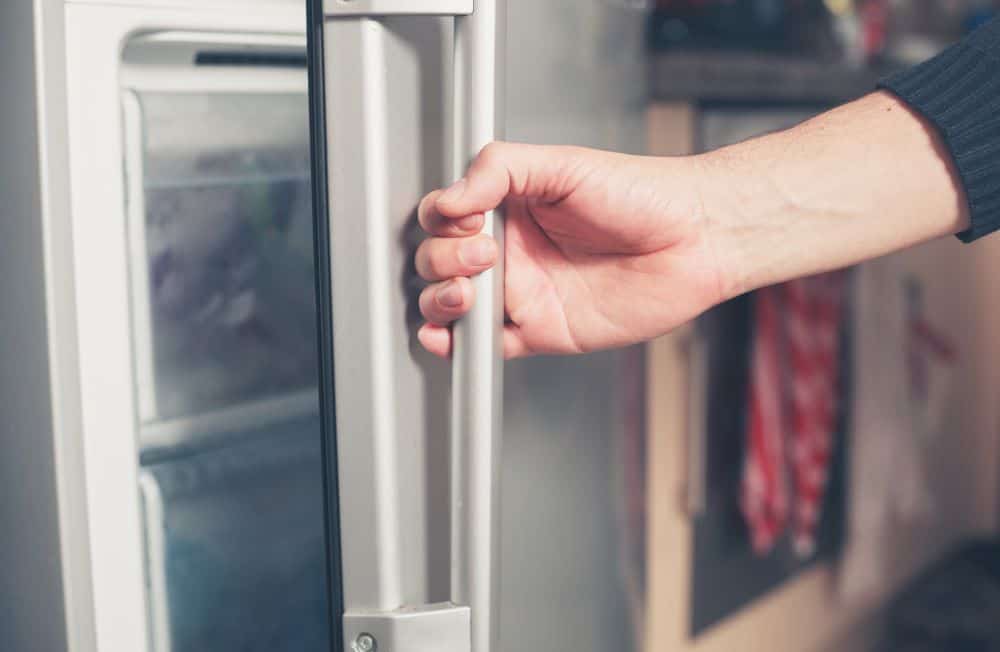
In your off-grid home, to keep food cool, you can either choose a standard AC freezer and run it from your solar panels via an inverter or opt to power a DC model directly from solar. On the other hand, there are numerous well-made propane-powered fridges and freezer you could select.
While the appliances themselves are often quite similar in price, the set up required to pipe in propane or to store the necessary solar electricity can drive the price up. A freezer run on solar power doesn’t need any extra money spent on fuel, but it may cost more in repairs. Propane freezers have straightforward mechanisms and are more durable than solar models.
A large electric fridge freezer is likely to use 300kWh a year, which won’t cost you anything extra if you’ve already got a solar panel system installed but will take a considerable amount from your overall capacity. If you run large appliances like freezers on propane, it’ll remove the load from your panels and batteries. This means that your battery storage will have more power for when it’s needed during the long grey days of winter.
Propane freezers are best in terms of overall cost and ease of use. They are also more robust and efficient than those that run on solar power.
The winner is: Propane
Related reading: Solar electric vs propane freezer
Range of use
Solar power is the most versatile way to power your home. There are many modern conveniences that require electricity, and for some, there are no propane alternatives. With solar power, you can run:
- Heaters
- Home water heaters
- Hot tub heaters
- UV water filters
- Large appliances including fridge, freezer, washing machine, tumble dryer and cooker.
- Lighting
- Cell charging
- Computers
- Small appliances like toasters, hairdryers, blenders and microwaves.
Propane is more versatile than you think, but it doesn’t quite have as broad a range as solar power. It’s restricted mainly to applications involving heating, cooling or lighting. With propane you can run:
- Water heaters
- Room heaters or fireplaces
- Large appliances like cookers, tumble dryers, fridges and freezers
- Hot tub heater
- Lamps
Propane generators
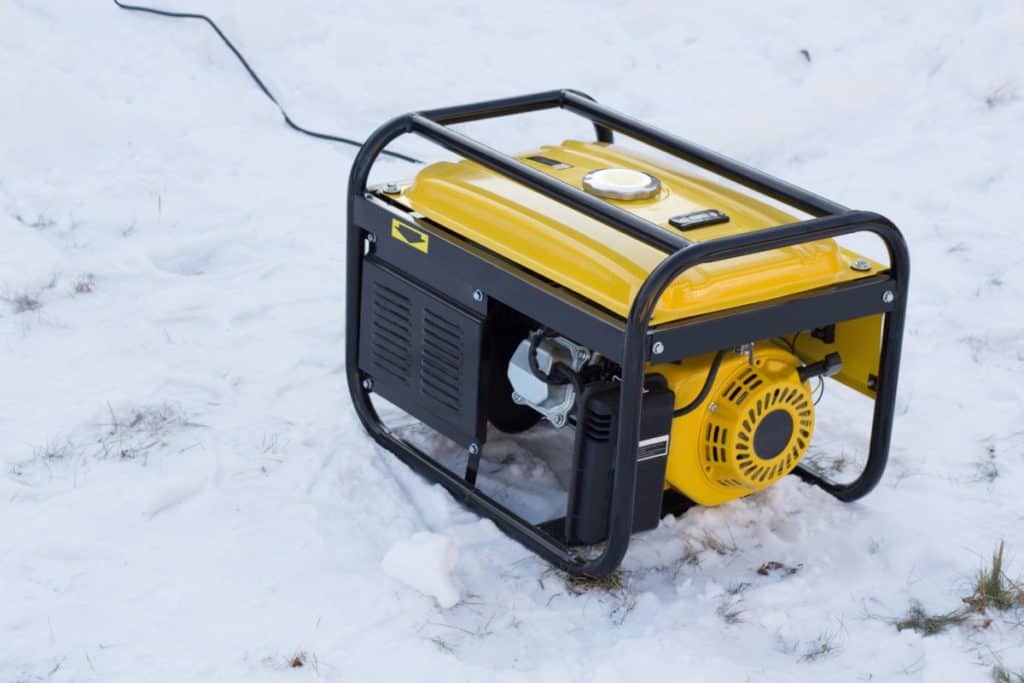
Propane generators are a great way to produce electricity, and by running one you can dramatically increase the versatility of propane. Many modern diesel generators come with the option to use propane as an alternative fuel or can be easily converted.
Generators can be used to run DC appliance, charge a battery bank or directed to your AC system through an inverter. In this way, propane can match solar power in the number of ways it can be used. However, the major problem is that generators aren’t built for continual use. They’re designed to be back up systems and used for a few hours or days at a time.
Some models even come with manufacturers notes that state you can expect between 3,000 or 5,000 hours of reliable use from them. That would only give you between 125 and 208 days before you needed to replace it and likely continuous use would have caused problems long before that.
This means that electricity produced by a propane generator can’t be considered in the same way as that produced by solar panels. Solar power is a long term solution, but generators are for short bursts or backups only.
The winner is: Solar
Related reading: 8 ways to generate off-grid electricity.
Which is more cost-effective?
On a day to day basis, solar wins hands down because solar panels continue to fill your batteries and power your appliances at no extra cost. In most cases, propane is more efficient than electricity, but because you don’t have to pay for solar power, it can’t win.
However, when you look at the bigger picture solar is actually far more expensive. The cost to install and solar panel system along with a solar inverter and battery bank can reach into the tens of thousands. On top of that, your battery bank and some other components are likely to need replacing every 5 to 10 years.
Propane has its own setup costs, but they’re significantly cheaper. To install the average propane tank, you’re likely to pay between $1500 and $2000. Currently in the US a gallon of propane costs between $2 and $3 depending on where you live. In the period between 2017 to 2019, propane production increased by 8.3%, allowing the prices to remain relatively low.
However, while propane is likely to cost less in the long run, the whole picture isn’t that simple. Because propane isn’t quite as versatile as solar, there are still several things in your home you’re likely to need electricity for. Although you could use a propane generator to charge a battery bank or run small appliances, you would need a different solution for the long term.
As a result, the most cost-effective option is to combine propane appliance and heating systems with a smaller set of solar panels. The propane will reduce the load on the panels allowing you to get fewer panels and build a more affordable system.
The winner is: Solar and propane
Solar pros and cons
Pros
- Once your system is installed there are very few ongoing costs apart from maintenance and replacement.
- Electricity is produced silently.
- Solar panels don’t produce any emissions.
- Panels can be used to run DC appliances directly without the need to pass through an inverter.
- Solar power can be used on a full range of things, including lights, heating and appliances.
Cons
- The installation of a solar panel system can cost tens of thousands of dollars.
- Solar panels only produce electricity when they’re in direct sunlight.
- A large roof surface or frame is needed to mount your solar panels.
- Thousands of watts are needed to produce heat for short periods of time.
- Solar power must be used immediately or stored in a battery bank.
- Battery banks only last between 5 and ten years and must be kept in the right conditions; otherwise, they may not work correctly.
Related reading: How many solar panels do I need to run my off-grid home?
Propane pros and cons
Pros
- You can stop and start using it when you like. The fuel can be stored or transported as you need it.
- You can use propane whatever the weather.
- Propane is considered safe because appliances are held to high safety standards, and if it leaks, it’s quick to dissipate into the air.
- Propane burns cleanly so it leaves less of a carbon footprint than other fossil fuels.
- Propane can fuel heating and cooling more efficiently than electricity.
- Buying a propane tank and setting it up in your home can likely be done for less than $4000.
- Gas cookers can be converted to propane.
- Propane hobs are responsive and quick to reach temperature.
- Propane lamps don’t rely on the weather and will provide light without any charging fro the sun
- Propane fridges and freezers are durable and low maintenance.
Cons
- To use electricity from propane, you’ll need a generator which can only be run for short periods of time.
- You need to pay for the propane so the more you use propane appliances, the more you will need to pay.
- If you use a generator, they can be quite noisy.
- Propane is produced by being separated from crude oil or natural gas. Sourcing these raw materials and separating them may release toxins into the environment.
Conclusion
Overall winner: Solar and propane in combination
When you look at all the areas of comparison, solar and propane have reached an overall tie. While there are ways you could solely use either one or the other, the best choice is to use a combination of both. This will allow you to benefit from the strength of each as well as provide you with essential backups should one system go down.
Because of the expense involved with using both systems, it’s worth looking at which areas you will use which power source. Consequently, you should only need to install smaller systems of each.
Propane is the best option for heating and refrigeration while solar is best for lighting and has a broad range of applications. Aim to use propane to run your largest appliances and run the remaining items on solar panels.
This may allow you to install a smaller, cheaper array, but remember to make it bigger than you need so you can keep your battery bank topped up for a grey day. Also having a propane generator on hand to top up the batteries and run things on a cloudy day is essential to get you through the winter.
For further reading, check out my recommendations for equipment that will help you take your home off-grid.
My Off-Grid Product Recommendations
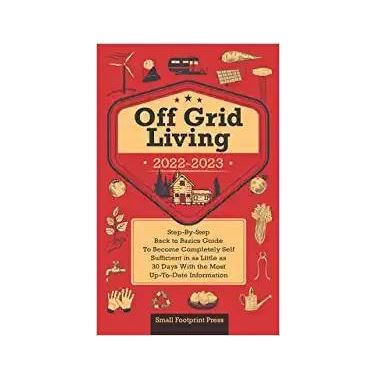
Useful Book: Off Grid Living 2022-2021 – This incredible step by step guide is a great read and gives you useful information about reaching self-sufficiency in just 30 days. Get the paperback on Amazon or read it free with a Kindle Unlimited subscription or listen to the audio version with Audible Plus membership.
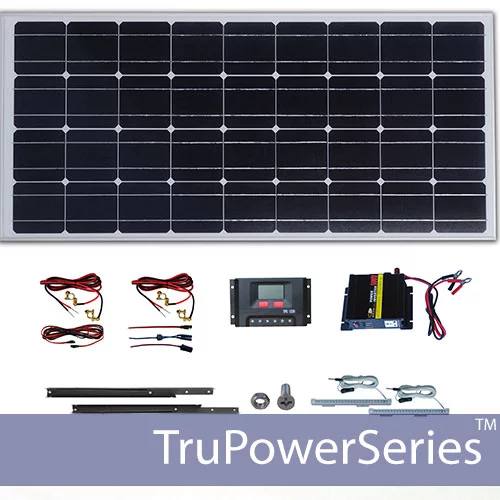
Small Solar Panel Systems: Silicon Solar – This is an excellent company that offers lots of products to get you started on your solar journey. Visit Silicon Solar.
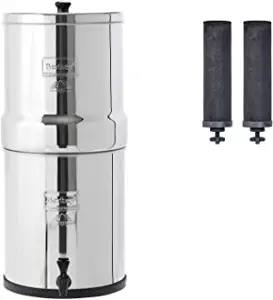
Family Water Filter: Big Berkey – For a fast, affordable water filter with no plumbing required, you can’t beat a Big Berkey gravity-fed filter like this one from Amazon.
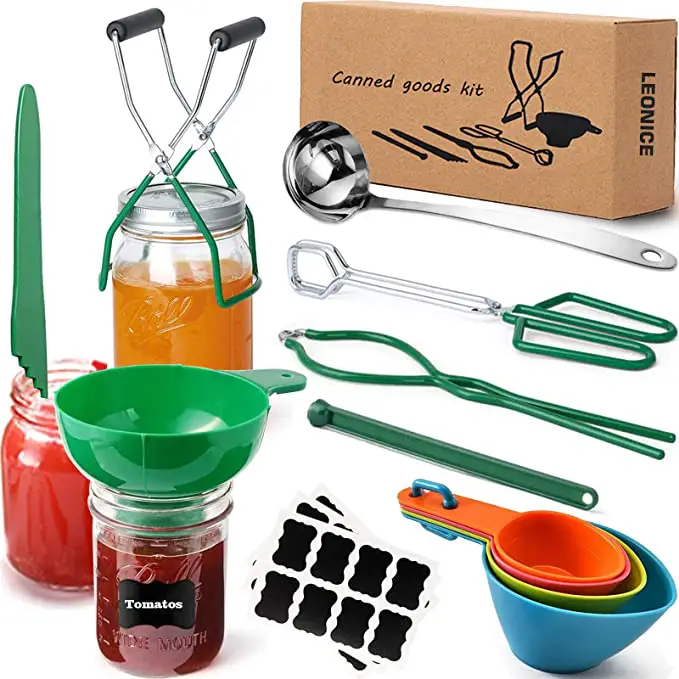
Canning Equipment – This canning starter kit, 22-quart Barton pressure canner and twelve-pack of Ball 16oz mason jars will help you preserve food as you work towards self-sufficiency.
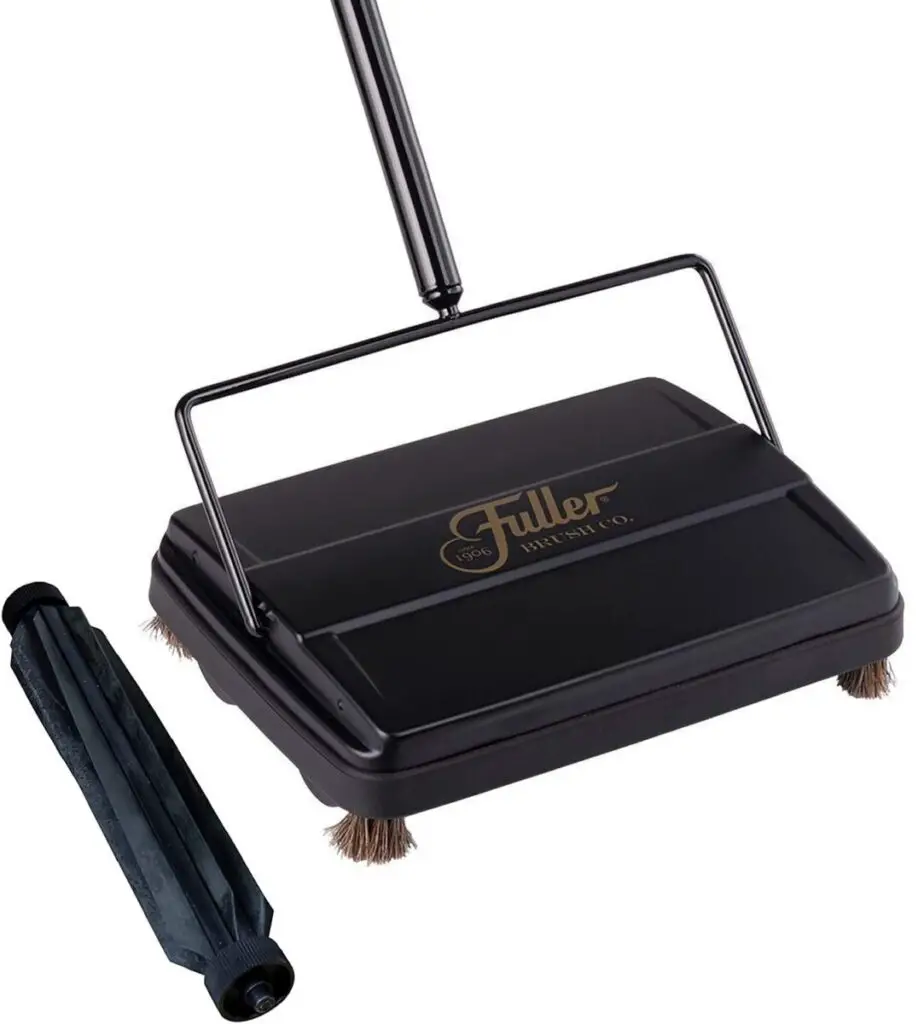
Cleaning: Fuller Carpet Sweeper –. This carpet sweeper is an ideal way to keep your home clean without using up your energy stores on vacuuming.

Handy Knife: Gerber Serrated Paraframe – This handy all-purpose knife is lightweight and ideal for all those little jobs around your home and garden.
